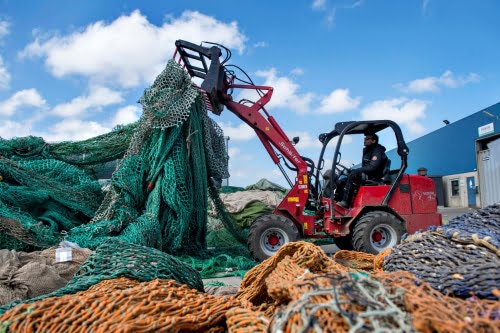BMW continues to lead the way. Its experiments in the field of electric and sustainable vehicles are closely followed by many manufacturers automotive all over the world.
In the latest announcement, the German company illustrated the use of parts made from recycled fishing nets in its future vehicles.
These new components will soon be able to reduce CO2 emissions by approximately 25% compared to the same parts produced with traditional methods and materials.
A car... for fishing
As part of its research into new materials for recycling, BMW has already started using thermoplastic elements with at least 2020% recycled materials in its vehicles from 40 onwards.
Today, however, in a first for the automotive industry, the “Neue Klasse” models launching from 2025 onwards will feature trim parts whose raw material contains approximately 30% recycled fishing nets and ropes .

Why is it important to recycle fishing nets?
Fishing nets make up a large portion of the plastic pollution in our oceans. They are often abandoned by fishermen or lost during storms at sea. These nets can continue to float in the water for years, harming marine life and polluting the ocean.
A unique recycling process
Two birds with one stone, to combine environment and industrial processes. The raw material will in fact be procured proactively in ports around the world to ensure that it does not end up being discarded at sea.
In a unique recycling process, waste materials from the maritime industry will be used to produce trim parts suitable for both the exterior and interior of future vehicles.
You can find at this link read more about BMW's plans to use recycled fishing nets.


